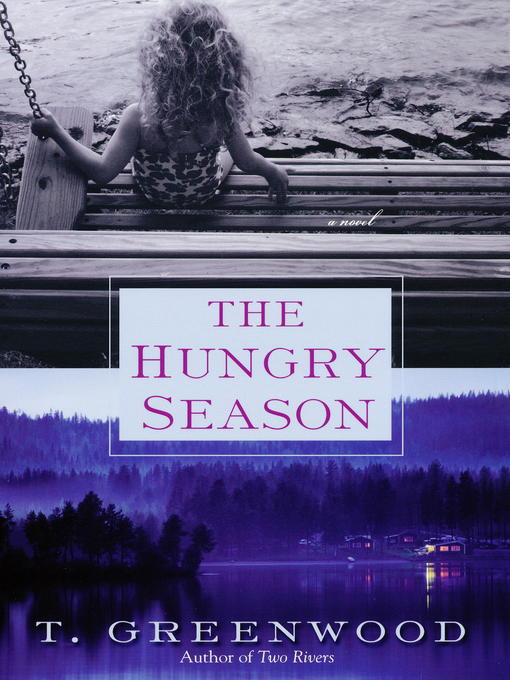
The Hungry Season
کتاب های مرتبط
- اطلاعات
- نقد و بررسی
- دیدگاه کاربران
نقد و بررسی

October 5, 2009
In her fifth novel, Greenwood calls grief by another name—starvation. The Mason family, devastated by the loss of 16-year-old Franny, spends the summer in Vermont, far from home in San Diego. Renowned novelist Sam Mason cannot conjure the words that used to come so easily to him before the death of his daughter: “the words are too thin, as fragile and brittle as bones.” Sam can no longer connect, especially not with his wife, Mena, and begins to waste away. Hunger proves to be a powerful metaphor for the family’s loss and desires although means of emotional escape are predictable: Mena considers adultery, while Finn, Franny’s twin, smokes marijuana. Saving this story from convention is Dale Edwards, a wacky college student and fan of Sam’s novels who writes letters telling Sam she has an advance from a publisher to be his biographer. Her gluttonous trek across the country to find her favorite author livens up the narrative, magnifying that this is intended as a deeply psychological read. But Greenwood’s epilogue wraps up the mess a little too neatly.

September 15, 2009
Family-damage specialist Greenwood (Two Rivers, 2009, etc.) tackles a really big trauma—coping with a loved one's death from anorexia.
The Masons are floundering. Successful novelist Sam and his actress-turned-caterer wife Mena have stopped making love and communicate with strained politeness. Their 16-year-old son Finn is into drink, drugs and general misbehavior. In desperation, Sam drives the family to spend the summer at the Vermont lake cottage where they vacationed until Finn and twin sister Franny turned 12. Although the author teases readers for many pages with coy hints about the cause of Franny's death seven months earlier, it's obvious early on that the budding ballerina had an eating disorder. In Vermont, the surviving Masons individually deal with their grief and guilt. Sam researches a book on a starvation experiment and tries an herbal remedy for his lack of sex drive. Mena cooks platters of her Greek specialties, gets a starring role in a community theater production of Sam Shepard's Fool for Love and carries on a flirtation with her costar. Finn is angry and sullen until he begins a friendship with Alice, whose father is in prison for beating her mother. (The sweet 15-year-old reminds Mena of Franny, a plot point that will prove significant.) Finn worries about running out of his herbal crutch until he begins tending a field of marijuana that Alice has stumbled on; the sensory and emotional immediacy in these scenes make them the novel's most memorable. Meanwhile, troubled Dale Edwards, who has been obsessed with Sam since she read his novels as a teenager, decides to seek him out. (She figures out his location with clues garnered from Franny's personal website and various Internet searches.) Dale's eventual arrival, after a road trip during which her mental state unravels, provides the external catalyst for the Masons' healing.
Maudlin, melodramatic and predictable, but the author knows how to make her characters' suffering wrench readers' hearts.
(COPYRIGHT (2009) KIRKUS REVIEWS/NIELSEN BUSINESS MEDIA, INC. ALL RIGHTS RESERVED.)

Starred review from October 15, 2009
This compelling study of a family in need of rescue is very effective, owing to Greenwood's ("Two Rivers") eloquent, exquisite word artistry and her knack for developing subtle, suspenseful scenes. California residents Sam and Mena Mason have returned to a rural Vermont cabin near where Sam was raised. Having spent many an idyllic summer here with their twins, Franny and Finn, this is the first here since Franny's tragic death. Sam, a blocked writer, carries his grief like a weight; Mena is filled with fear that her marriage is unraveling and that Finn is in danger; sullen, self-destructive Finn's anger is enormous. This summer together seems a test complete with struggles, strengths, and second chances. Greenwood plaits Sam's attempts to salvage his family with the parallel tales of Finn's growing camaraderie with a local teen and a hopeful but obsessed admirer of Sam's. VERDICT Somewhat reminiscent of Rebecca Johnson's "And Sometimes Why", Hyatt Bass's "The Embers", Judith Guest's "Ordinary People", and Alice Hoffman's "The Story Sisters", Greenwood's sensitive and gripping examination of a family in crisis is real, complex, and anything but formulaic.Andrea Tarr, Corona P.L., CA
Copyright 2009 Library Journal, LLC Used with permission.

























دیدگاه کاربران